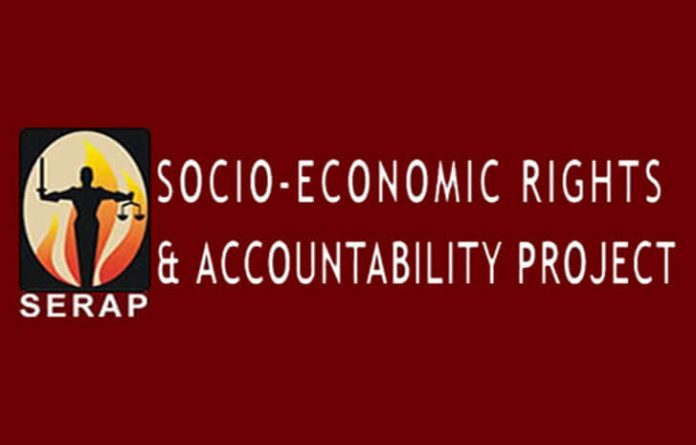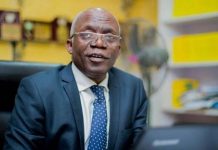The Socio-Economic Rights and Accountability Project has demanded that all 36 state governors and the Minister of the Federal Capital Territory, Nyesom Wike, publicly disclose how they have spent the trillions of naira received from fuel subsidy savings since the policy’s removal in 2023.
According to a statement released by the Deputy Director, SERAP, Kolawole Oluwadare, on Sunday, the group urged the governors and the FCT minister to “provide details of the plans on how subsequent fuel subsidy savings they expect to collect from FAAC allocations, including details of any planned projects on which the money would be spent.”
In a series of Freedom of Information requests sent to the governors and the FCT Minister, the organisation expressed concern that the spending of the increased Federation Account Allocation Committee allocations has been largely shrouded in secrecy.
SERAP warned that there is a significant risk of mismanagement, diversion of public funds, and reckless spending on nonessential luxuries while millions of Nigerians continue to face worsening poverty, unpaid salaries, and lack of access to basic social services.
The organisation noted that the increased FAAC allocations following the end of fuel subsidy should have translated into measurable social and economic relief for citizens, but have instead raised more questions than answers.
It cautioned that if the state governments and the FCT administration failed to respond to the requests within seven days, it would take appropriate legal action to compel transparency and accountability in line with the Freedom of Information Act and recent Supreme Court judgments.
The FoI requests read: “There is a significant risk of mismanagement or diversion of funds linked to the increased FAAC allocations collected by the states and FCT. The spending details of the money collected by several states and the FCT from fuel subsidy savings have been mostly shrouded in secrecy. Millions of poor and vulnerable Nigerians have not benefited from the trillions of naira collected by governors and the FCT minister as a result of the subsidy savings. Nigerians continue to face a worsening poverty crisis.
“Several states, including your state, are also reportedly spending public funds, which may include fuel subsidy savings to fund unnecessary travels, buy exotic and bulletproof cars, and generally fund the lavish lifestyles of politicians. There are continuing reports of widespread poverty, underdevelopment, and lack of access to public goods and services in several states. Opacity in the spending of fuel subsidy savings collected by you would continue to have negative impacts on the fundamental interests of the citizens and the public interest. Transparency would ensure that public funds are not diverted into private pockets.
“We would be grateful if the recommended measures are taken within 7 days of the receipt and/or publication of this letter. If we have not heard from you by then, SERAP shall consider appropriate legal actions to compel your state and the FCT to comply with our request in the public interest. Disclosing the details of the spending of the money collected by your state as fuel savings would allow Nigerians to scrutinise them and to hold you to account for the spending of public funds.
“The states and FCT may have failed to transparently and accountably manage the allocations collected from the subsidy savings. Nigerians have the right to know how their states and FCT are spending the savings from the removal of fuel subsidy as part of their human right to information.”
SERAP added that providing proper accountability for the funds could help to alleviate poverty and improve access to basic public services for the masses.
It added, “Combating the corruption epidemic in the spending of the money collected would alleviate poverty, improve access of Nigerians to basic public services, and enhance the ability of your states to effectively and efficiently discharge their responsibilities.
“According to our information, the Federation Account Allocation Committee (FAAC) in 2024 distributed N28.78 trillion from the removal of subsidy on petrol to the three tiers of government, representing a 79 per cent increase from the previous year. State governments’ allocations increased by 45.5 per cent to N5.22 trillion. Monthly distributions in 2025 have reportedly exceeded N1.6 trillion.
“However, despite the increased allocations of public funds to your state and the FCT, millions of poor and socially and economically vulnerable Nigerians have not benefited from the savings. Many states reportedly owe civil servants’ salaries and pensions. Several states continue to borrow to pay salaries. Millions of Nigerians resident in your state and the FCT continue to be denied access to basic public services. Several years of allegations of corruption and mismanagement in the spending of public funds by several states and the entrenched impunity of perpetrators have undermined public trust and confidence in governments at all levels.
Section 15(5) of the Nigerian Constitution 1999 (as amended) requires public institutions to abolish all corrupt practices and abuse of power. Section 16(2) of the Nigerian Constitution further provides that, ‘the material resources of the nation are harnessed and distributed as best as possible to serve the common good. Section 13 of the Nigerian Constitution imposes clear responsibility on public institutions, including your state, to conform to, observe, and apply the provisions of Chapter 2 of the Constitution.”
IN addition, the organisation noted that under the UN Convention against Corruption, Nigeria has made legally binding commitments to ensure accountability in the management of public resources, hence its demand for public accountability.
SERAP’s statement continued, “Nigeria has made legally binding commitments under the UN Convention against Corruption to ensure accountability in the management of public resources. Articles 5 and 9 of the Convention also impose legal obligations on your state and the FCT to ensure proper management of public affairs and public funds.
“The Nigerian Constitution, Freedom of Information Act, and the country’s anti-corruption and human rights obligations rest on the principle that citizens should have access to information regarding their government’s activities. The constitutional principle of democracy also provides a foundation for Nigerians’ right to know the spending details of the money collected from the savings from the removal of fuel subsidy.
“Citizens’ right to know promotes openness, transparency, and accountability that is, in turn, crucial for the country’s democratic order. The effective operation of representative democracy depends on the people being able to scrutinise, discuss, and contribute to government decision-making, including on the spending of money collected by your state and FCT from the subsidy savings.
“To do this, they need information to enable them to participate more effectively in the management of public funds by their state government. The oversight afforded by public access to such details would serve as an important check on the activities of your state and help to prevent abuses of the public trust.”
It further noted, “The Supreme Court in a groundbreaking judgment declared that the Freedom of Information Act ‘is applicable and applies to the public records in the Federation’, including those relating to the spending of the subsidy savings kept by your state. With the landmark judgment, the Supreme Court has made clear that state governors can no longer hide under their unfounded claim that the Freedom of Information Act does not apply to them.
“As the Supreme Court has eloquently stated, any freedom of information laws by states are subject to the Freedom of Information Act. Any failure to account for the spending of money collected by your state from the subsidy savings will amount to a blatant disregard of the Supreme Court judgment, which has effectively ended the claims by governors that the Freedom of Information Act does not apply to how they spend public funds, including the subsidy savings.
“The judgment sends a powerful message that state governors can no longer escape accountability for how they spend public funds. SERAP urges you to promptly uphold the Supreme Court judgment by urgently accounting for how your state is spending the money it collected from the subsidy savings. The Supreme Court has pointed the way for state governors to show accountability and commitment to transparency in the spending of public funds.
“Similarly, your state has clear legal obligations to provide the information sought as prescribed by provisions of the Nigerian Constitution and the African Charter on Human and Peoples’ Rights (Ratification and Enforcement) Act.”
It was reported that following the removal of fuel subsidy by President Bola Tinubu in May 2023, the Federation Account witnessed a sharp rise in allocations to the three tiers of government, with state governments and the FCT collectively receiving trillions of naira in extra funds.
However, questions have persisted about how these funds have been utilised, as widespread poverty, unpaid pensions, and poor infrastructure continue to plague many states.
Civil society groups, including SERAP, have repeatedly called for greater transparency in the use of the savings generated from the subsidy removal.
The latest request by SERAP comes amid growing concerns that the benefits of the increased revenue have not trickled down to ordinary Nigerians, despite the federal and state governments’ promises to use the funds for social welfare and economic revitalisation.
-Advertisement-
Grab our latest Magazine, "Chief Wole Olanipekun, CFR, SAN, A man of wide horizons and deep intentions". Get your order fast and stress free.
For more details about Newswire Law&Events Magazine, kindly reach out to us on 08039218044, 09070309355. Email: newswiremagazine@yahoo.co.uk. You will be glad you did






